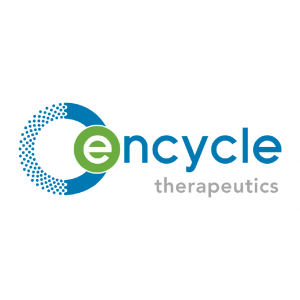 Encycle Therapeutics, a MaRS Innovation spin-off company, was featured by Business Without Borders‘ High Tech section in a Q&A profile with MI’s President and CEO, Raphael Hofstein.
Encycle Therapeutics, a MaRS Innovation spin-off company, was featured by Business Without Borders‘ High Tech section in a Q&A profile with MI’s President and CEO, Raphael Hofstein.
Here’s an excerpt:
Business Without Borders (BWB): What makes Encycle’s technology so promising?
Raphael Hofstein (RH): Proteins are made of smaller units called peptides, usually existing as linear chains. If they get into the bloodstream, they get degraded rapidly by enzymes and they find it very difficult to get into cells of the body. What we want them to do is become drugs. There are many useful features in peptides that can turn them into very useful therapeutics, but the key is entering the cell. Here comes the sensation: Andrei Yudin developed a technique to turn linear chains into cyclical chains. They look like doughnuts. As such, they are protected from the degradation by enzymes and they also can enter through the membrane of a cell. All of a sudden, we have a whole host of molecules accessible to us for drug development.
BWB: What is the market potential?
RH: It’s a multi-billion-dollar market. Start with oncology. Go through metabolic disorders like diabetes. Move on to problems of the nervous system. Hopefully eventually also for Alzheimer’s. It’s really a broad-spectrum opportunity.
The complete article, titled “Biomedical start-up aims to commercialize peptide research,” is available on the Business Without Borders website [edit: this article is no longer available].
It describes the partnership between MaRS Innovation and The Québec Consortium for Drug Discovery (CQDM), which was responsible for securing $1 million in initial investment to launch Encycle. The project is one of two pilot projects undertaken as part of the Ontario-Québec Life Sciences Corridor, which was announced at the 2011 BIO International Convention to foster existing strengths within the two provinces.
Based in part on Encycle’s success, CQDM and MaRS Innovation are also partnering with the Ontario Centres of Excellence (OCE) and the Ontario Brain Institute (OBI) to launch the Québec/Ontario CQDM Funding Program, which will support similar collaborative research projects that seek new tools for biopharmaceutical research.

